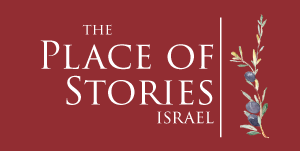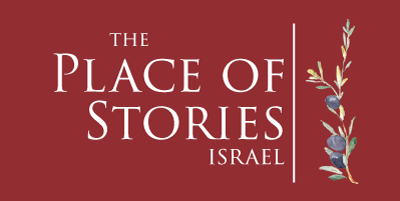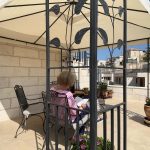Jerusalem Journal # 207
Part 2 of “A Story of Forgiveness”
How do you choose final words to speak across thousands of miles to a former husband on his deathbed? There had not been one word of contact with Bill since the 1998 Domestic Violence Injunction went into effect, lest it become void. Over those twenty-four years, the words from the Bible, “In so far as it depends on you, be at peace with all men,” loomed as an impossibility for me. Here was my moment of decision. “Yes,” I said hesitatingly to my daughter’s invitation, “I will speak with him.” That day, I chose peace as Lauren held her phone to her father’s ear, and I began. “Thank you for our two daughters who have cared for me and given me such joy. Thank you for everything we experienced in our marriage, good and bad, that has brought me to my destiny in Israel. Lastly, I forgive you. I’ve told you before, but I want these to be the final words you hear me say. I forgive you.” Closure. At peace. Shalom. Life-support machines went silent hours later. Cremation followed.
Days later, there was another phone call. Since Bill had never fulfilled his dream to return to Israel, the girls suggested bringing his ashes and scattering them here on the Via Dolorosa. “No way!” I barked back. “How could you do that to me? I don’t want to leave my building and think about his ashes on the cobblestones!” I was boiling. It was a Sunday afternoon, and I turned on my congregation’s livestream to watch while being able to do some jogging during the worship songs. That could get my blood pressure down! Singers began with the refrain, “Every high thing must come down, every stronghold shall be broken.” I sang along while I jogged, repeating the phrases. A realization cut through the scar tissue on my heart like the scalpel of a trained surgeon. “I have a stronghold of fear,” I spoke aloud to the heavens. God broke my fear that day. I didn’t have to be afraid anymore. Bill couldn’t hurt or harass me.
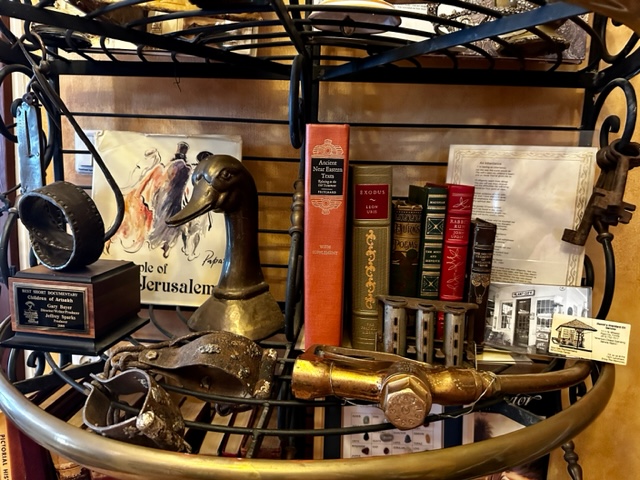
Gary handcrafted these rusty shackles for a play he once directed.
Weeks later, an idea came to me that I didn’t generate, but it seemed so very right. It was a God-idea that would allow me to fulfill both vows I made before God and to Bill in 1974. I called my daughters and told them I wanted them to bring their father’s ashes to Israel, and we would dig a little hole at the foot of my future grave on Mt. Zion.
This past May, I packed my suitcases to return to Israel after more than a year of visa exile. Heart changes were stirring, and I now wanted the PRIVILEGE of bringing and burying some of the ashes before more time passed. Donning latex gloves, I pulled the box off the shelf in my daughter Lanna’s home, laid my hands on the words, “William Ray Daniel, Jr., Cremation Society of Tampa, Florida,” and prayed. “Thank You, Lord, for the gift of Bill in my life, for our daughters and their children. Let my grandchildren learn that people change and marriages don’t always survive, but You desire forgiveness and bringing beauty from ashes. Thank You for all the pain You brought me through in marriage. Thank You that You have inspired me with a way to pay my vows and be at peace.”
Once in Israel, I put off the burial because temperatures were triple-digits, and dust filled the skies. A week later, I awoke in Jerusalem and rolled over in bed, glancing at phone messages. A story popped up on the news feed entitled “Amazing Grace: Story of Forgiveness.” I opened it to read about a city police captain who, years after his son was gunned down and killed, adopted the murderer of his son. I whispered, “Lord, I want to be part of a story of forgiveness.” I went into the living room, where I opened my daily devotional to the page and the day’s date marked by a thin strand of ink-spotted gold ribbon.
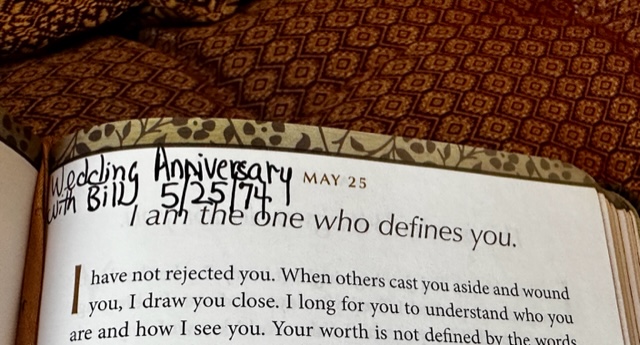
At the top of the page was a note I wrote last year on the
same date, “Wedding anniversary with Bill—5/25/1974.”
I stared at the devotional’s date and then checked my calendar. I had forgotten it was the date I had mourned each year since the shattering crisis of adultery. Now, the dust cleared in my mind, “Yes, regardless of the heat, today is when I must bury the ashes,” I said to myself. I tucked three large bottles of water, a trowel, clippers, a trash bag, and garden gloves into my backpack and started my trek through the Old City, down to the cemetery on Mt. Zion. There, I pulled weeds, washed Gary’s grave and my slab stone, then checked to ensure no one was watching “an older woman” digging around the gravestones.
Opening a small trench in the sunbaked soil at the base of my gravestone, I unsealed the ziplock bag, allowed the ashes to fall into the ground, and then covered it. I sat, absorbing the moment. A thought raced through my mind, “A stone should be placed on top to keep the weeds at bay and mark the site.” Looking around in the brush nearby, I found a small discarded rectangular piece of marble, and beside it, something blood-red was peeking out of the brambles.
There, amid bits of trash and dried clumps of soil, were two tiny red flowers joined at the root, called in Hebrew “Kalanit” from the root word “kalah,” meaning “bride.” These flowers cover the Israeli landscape in January and February but disappear when heat and drought begin. They were entirely out of season, but here they were, offering themselves as a memorial, so I picked them and placed them on the marble stone covering the ashes as a symbol of first love. That first love began at sixteen during the sexual revolution of the late 1960s, and our relationship was the soul tie becoming a faulty foundation for marriage. I sensed God saying in that holy moment, “I am your ever-faithful first love. I knew you before I formed you in the womb.” The shame I carried for over fifty years and my fetters of foolishness broke off.
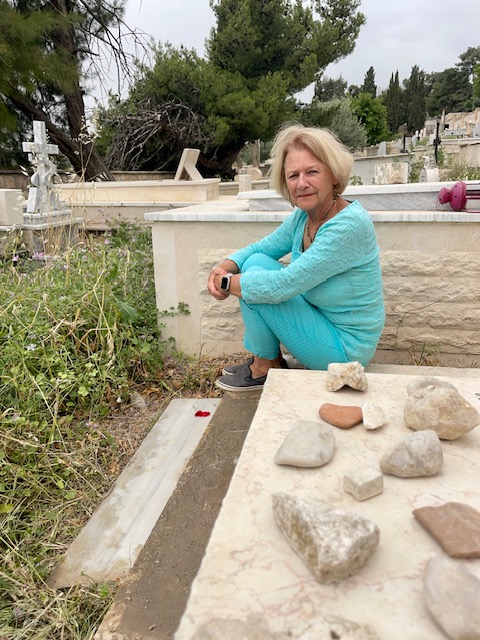
The cemetery on Mt. Zion is where I laid to rest
more than physical remains and left renewed.
There had been no obituary, no funeral, no eulogy for Bill. I felt compelled to speak out words of a simple tribute and thankfulness that I could complete the vows for both of us we’d made so long ago. I had lost track of what anniversary it was. Cold chills raced through my body as I finished the mental computation. This day was our forty-ninth anniversary. Seven sevens—completeness. The Bible records the importance of starting the fiftieth year as “the year of Jubilee.” In that fiftieth year, debtors freed those in debt. Masters released those enslaved. I walked home from that cemetery debt-free, paying my vow precisely on completing the forty-ninth year, receiving the key that unlocked my shackles of fear and shame.
How can YOU show kindness to those who cannot repay you or others you think are not deserving? With whom are you not “at peace?” What would a story of forgiveness look like for you?
Enjoying the walk home,
Cindy
Facebook: Cindy Bayer
Instagram: cindybayerstories
